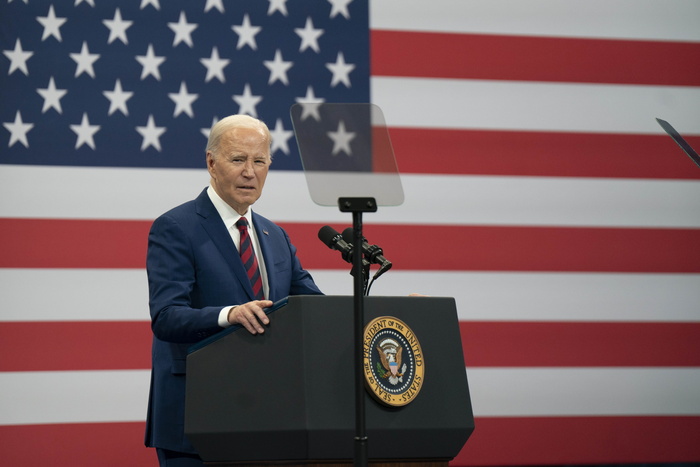Germany wants to put billions of euros into the successor to the Eurofighter.
After the Federal Audit Office, there is now criticism of the project from the opposition in the Bundestag.
Berlin (dpa) - The Federal Audit Office warned of serious shortcomings before the decision in the Bundestag on the further financing of the multi-billion air combat system FCAS.
In their classified paper, the auditors point out restricted rights of use to the developments financed with taxpayers money and criticize “that no final negotiated agreement can be presented to parliament”. “Whether the risks are acceptable has to be decided in the overall political perspective,” it says. The paper was available to the German Press Agency in Berlin.
FCAS should be operational from 2040 and replace the Eurofighter. It is supposed to fly in conjunction with unarmed and armed drones and is in this respect more than a combat aircraft. The total costs were estimated at a three-digit billion amount. The industries of Germany, France and now also Spain are involved in the project. The project - full title: Next Generation Weapon System in a Future Combat Air System (NGWS / FCAS) - is extremely complex. Just one point of contention: who holds the rights of use when taxpayers' money is used to finance technological quantum leaps.
In mid-May, Germany, France and Spain had announced a “fundamental agreement” for the continuation after an industrial political struggle.
Before that, there was considerable pressure from France.
A connoisseur of the state of affairs spoke of "political-emotional blackmail" by the French side with reference to European cooperation.
The Ministry of Defense now intends to conclude another “implementation agreement” with France and Spain.
“The German share of this amounts to around 4.468 billion euros,” the Federal Audit Office found.
On Wednesday, the budget committee is expected to approve it in the last meeting before the summer break.
The auditors refer to information from the defense department, according to which the German wish for unrestricted use of the study results for state purposes "could not be enforced in the negotiations with the program partners".
Some of the results are now "only usable with the consent of the manufacturer and the partner nations" outside of the program's purposes.
The Federal Court of Auditors recognizes the political importance of the project, but criticizes the fact that "no final negotiated agreement can be submitted to parliament".
The auditors are also critical of the construction of a so-called additional demonstrator - a kind of prototype - in Germany and recommend an analysis of the economic viability.
The Ministry of Defense also pointed out "certification risks" with the aircraft.
The "Spiegel" had previously reported considerable concerns from the Bundeswehr Procurement Office (BAAINBw), according to which a submitted contract "has to be renegotiated from a technical and economic point of view and is therefore not ready for drawing". The contract is "fraught with very high risks" and jeopardizes the target "very seriously". "The greatest risks are in the aspects of rights of use, industrial cooperation and work distribution as well as technology control and innovation," says the paper, which was also available to the German press agency. The "Spiegel" wrote: "Internal documents show: Germany has allowed the French to riot."
FCAS is of great importance as "one of the most important European armaments projects of the 21st century", said the FDP defense politician Marcus Faber. "But to knit this billion-dollar armaments project with the hot needle, even without an existing contract, does not do justice to the concern and carries serious risks."
The Green defense politician Tobias Lindner said that it basically makes sense to build a fighter plane together in Europe. But he warned with a look at a transport plane and a helicopter: "Future European armaments projects must not repeat the mistakes of the past - as with the A400M or NH90." It was "extremely strange" that the budget committee should now release funds, but none for it there were final negotiated contracts. "This is a unique and unacceptable process for armaments projects," says Lindner.
The chairman of the Left in the Defense Committee, Alexander Neu, spoke out against the project and expected cost increases of up to several hundred billion euros. "In this way, valuable tax money, which would be important for real challenges such as combating the climate and environmental catastrophe, is being sunk into nonsensical armaments projects."
Rüdiger Lucassen, defense policy spokesman for the AfD parliamentary group, expected a "billion dollar grave without ever having a ready-to-use system in the air".
The financial dimension far exceeds the strength of the contractual partners, possibly also the technical know-how.
From a German point of view, the unequal distribution of burdens is also unacceptable.
"The French arms industry is massively preferred, the German taxpayers disproportionately burdened," said Lucassen.
“With FCAS, Germany is ultimately financing the successor to the French fighter-bomber fleet, which can land on aircraft carriers and carry nuclear weapons to its target.
Germany and the Bundeswehr do not need either. "
© dpa-infocom, dpa: 210620-99-68751 / 3




